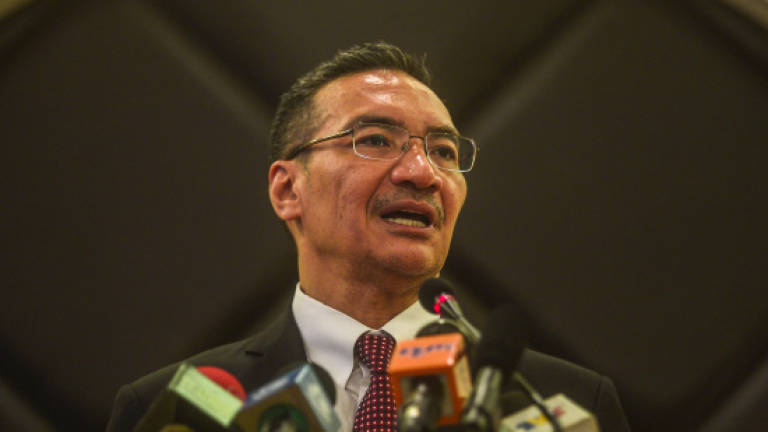Hisham: ASEAN as a united bloc important to engage superpowers

SINGAPORE: Malaysia stresses the importance of a united ASEAN as a bloc in voicing out its concerns, especially in engaging superpowers on security related matters in the region, said Defence Minister Datuk Seri Hishammuddin Tun Hussein (pix).
He said it was important that deals done by superpowers such as the United States and China should not disregard the interests of smaller countries such as Malaysia.
"Small nations fear that deals that superpowers do will leave us on the beach when tide goes out. That's why ASEAN is the key," he said during a question-and-answer session at the second plenary session on the second day of the International Institute for Strategic Studies' (IISS) 15th Shangri-La Dialogue security summit here today.
Earlier, in his plenary address, he said for Malaysia and its friends in Southeast Asia, the main platform for the former was and will always be ASEAN.
The plenary session which discussed on "Managing Military Competition in Asia", also presented Defence Ministers from India and Japan, Manohar Parrikar and Gen Nakatani as panellists. It was moderated by IISS Director-General and Chief Executive Dr John Chipman.
In his speech, Hishammuddin also highlighted a three-pronged strategy in managing military competition, namely building trust at all levels; adherence to international law and norms; and leadership.
On leadership, he said rationality, cool heads and a vision for peace can guarantee the stability of the region.
"The absence of these will lead to its destruction. Leadership is not only about giving orders but managing competing interests.
"It is about knowing when to give and when to take; that sometimes you have to give first or take only a little," he added.
Hishammuddin also stressed that leadership was not only needed at the very top.
"Often, it is the only thing standing in the way of a clash or worse is the judgement of a battalion commander in the jungles or a submarine captain out at sea.
"It is about being able to put yourselves in the shoes of these serving men and women and to know that the decisions you make can affect many lives," he added.
He also believed that military competition requires solutions driven by mutual respect and trust.
"If we trust each other, military competition would be a positive thing rather than a constant worry," he said, adding that countries can focus on complementing, rather than surpassing each other.
"We will then be able to overcome the so-called: "security dilemma", of action and reaction, to maintain the status quo," Hishammuddin said.
Admitting that trust-building and cooperation are difficult propositions even at the best of times, he said, however, a piecemeal approach in addressing this challenging task, might be more sustainable.
"There's no reason why we cannot first start at the regional or sub-regional architecture and operational levels," he said.
Hishammuddin also pointed out all states in the contemporary world, including great powers, are compelled to justify their behaviour according to legal rules and accepted norms.
"This seems very basic but the sad fact is that lately international law is often more honoured in the breach.
"States may conform but not necessarily obey. Even powerful states can lack the capacity if regional frameworks hamper compliance," he added.
He said if the international rules-based order were to guarantee peace and stability, nations, weak or powerful, must have the discipline to adhere to it.
"It is often the case that major powers hide behind the rules of the international system to advance their own national interests whilst smaller states are made to accept whatever the outcome, favourable or otherwise," Hishammuddin said. — Bernama